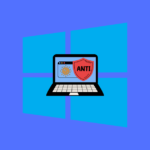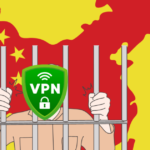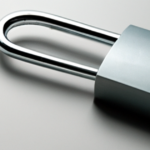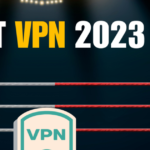Picture yourself in a busy market, looking for a quick way out. While many paths are crowded and slow, there are hidden shortcuts that offer a faster escape.
VPNs can sometimes act as those shortcuts for your internet. In this article, we’re going to explore this fascinating tool and see if it can indeed make your online journey faster. Let’s get started…
Table of Contents
Understanding VPNs and Internet Speed
- What’s a VPN?
- Think of a VPN as a special route on the internet. In the early days of the internet, only big businesses used them for safety. Today, with concerns about privacy, many individuals use VPNs.
They can protect your information from sneaky hackers and nosy advertisers as well, but do they also speed things up?
- Think of a VPN as a special route on the internet. In the early days of the internet, only big businesses used them for safety. Today, with concerns about privacy, many individuals use VPNs.
- Does a VPN change your internet speed?
- Picture this: You’re watching an entertaining video online, and suddenly it starts buffering, essentially halting playback and interrupting the experience. Frustrating, right? Sometimes, a VPN can help with that.
But there’s a twist; while it can speed things up in some situations, it can also slow things down in others.
- Picture this: You’re watching an entertaining video online, and suddenly it starts buffering, essentially halting playback and interrupting the experience. Frustrating, right? Sometimes, a VPN can help with that.

Can a VPN Make Internet Faster?
- Avoiding Slowdowns from Internet Companies
- Remember our market example? Now, imagine your internet company blocks one of those fast routes during busy times. But with a VPN, you’ve got a secret map, and they can’t block your way. This is where a VPN can indeed speed up your internet.
- Using Fast Ways to Connect
- Just like cars have different models, VPNs have different “models” or methods to connect. Some are like sports cars – fast and zippy. Others are like big trucks – strong and secure, but slow. Knowing which to use can make all the difference.
Evaluating VPN Services for Speed and Performance
Popular VPN Services
When considering VPN services for speed and performance, some of the most popular options include ExpressVPN, NordVPN, and Private Internet Access. These providers have established a reputation for delivering fast, reliable connections and maintaining user privacy as well.
Considering Latency and Privacy
While speed is an essential aspect of a VPN service, latency and privacy should also be taken into account. Latency refers to the time it takes information to travel through the VPN connection. Lower latency generally results in a smoother browsing experience. Keep in mind that a VPN with high-speed performance may still have a high latency, which could affect the overall browsing experience for the user.
Equally important is privacy, as one of the primary functions of a VPN is to protect the user’s online activities from being monitored or tracked. While comparing VPN speed and performance, it is necessary to ensure that these providers also have robust privacy measures in place.
So evaluating VPN services for speed and performance involves comparing popular providers like ExpressVPN, NordVPN, and Private Internet Access, reviewing their speed test results, and taking into account latency and privacy factors. A well-balanced VPN service should provide high-speed connections, low latency, and robust privacy protection too.
Things That Affect VPN Speed
- Secret Codes (Encryption)
- Every message sent through a VPN is like a letter in a locked box – the stronger the lock (or code), the safer the message. Sometimes it takes longer to lock and unlock that box, however, thus slowing things down.
- Connection Types (VPN Protocol)
- Some ways, like IKEv2, are like speedy motorbikes on the internet highway. Others, like OpenVPN, are like armored vehicles – super safe but not always the fastest.
- Your Internet Company
- Sometimes, your internet company can be like a grumpy gatekeeper, slowing you down whenever they feel like it. A VPN can be your secret handshake to quickly move past the gatekeeper.
- Your Device
- Using an older computer with a VPN is like trying to race with an old bicycle. It can work, but it’s certainly not the best for speed.

Weighing the Pros and Cons of Using VPNs for Faster Internet
- The Good Stuff
- VPNs are like superheroes of the online world. They keep your secrets, protect you from online bullies, and can even give you a speed boost.
- The Not-So-Good Stuff
- Even superheroes have weaknesses. VPNs can sometimes be slow, especially if they’re overloaded with too many users.
Best VPNs for speed?
- Popular Choices
- Just as some restaurants are famous for their delicious food, some VPNs, like ExpressVPN and NordVPN, are famous for their speed and service.
- Balancing Speed and Safety
- Picking a VPN is like picking shoes. You wouldn’t wear sandals for a mountain hike, right? For some online activities, you need more speed; for others, more safety. Make sure you choose wisely, according to the online activities you engage in most.
Making your VPN faster
- Picking the Right Connection Spot and Method
- If you’re in New York and connect to a VPN spot in Los Angeles, it’s like sending a letter across the country – it takes time. But if you pick a closer spot, it’s faster.
- Balancing Safety and Speed
- Remember our locked box? If you’re just watching a movie, maybe you don’t need the strongest lock. But if you’re doing online banking, you’ll want the best protection, even if it’s a bit slower.
Conclusion
Looking to a VPN for a speed boost can work, but whether or not you should even try to accomplish this truly depends on your own set of circumstances. If security is paramount and your internet service provider already provides solid speeds, taking the time to find a speed-boosting VPN may simply be a fool’s errand.
If, however, you do feel it’s needed, I hope you take all the advice above to heart. Make sure you properly evaluate your VPN choices for speed and performance (including potential latency issues), but also take into account both privacy and security. Remember, a well-balanced VPN service will provide high-speed connections, low latency, and outstanding privacy protection as well.
Frequently Asked Questions
Can a VPN improve browsing speed?
In some cases, a VPN can improve browsing speed by avoiding throttling or bypassing congested networks. However, VPNs typically add a layer of encryption that may actually cause a slight slowdown. With a top quality VPN provider, this slowdown is usually negligible, and the browsing experience remains smooth.
Does VPN affect gaming performance?
Using a VPN for gaming can have mixed results. A good VPN can bypass regional restrictions and protect against DDoS attacks, but it may also introduce latency due to the additional data processing and distance to the VPN server. Selecting a VPN server close to the game server can help minimize the impact on gaming performance.
Do VPNs slow down home internet?
VPNs can slightly slow down home internet speeds due to the added layer of encryption and the process of routing traffic through the VPN server. This slowdown depends on the VPN provider and the chosen server location. A high-quality VPN service will have minimal impact on your home internet speeds.
Can VPN enhance mobile experience?
VPNs can enhance mobile experiences by securing connections on public Wi-Fi networks, bypassing geographical restrictions, and potentially improving browsing speeds. However, the benefits depend on the VPN provider’s expertise and server infrastructure. In any case, it’s crucial to choose a reputable VPN service to ensure a positive impact on your mobile experience.
What’s the ideal speed for using a VPN?
The ideal speed for using a VPN really depends on individual preferences and activities. Streaming services generally require a minimum of 5Mbps, while gaming and video conferencing typically need a higher speed. In general, a VPN with good infrastructure will be able to provide a stable and fast connection regardless of the specific speed requirements.
Is there a free VPN for boosting speed?
There are free VPN services available that claim to boost speeds, but they come with limitations and potential risks. Free VPNs often have fewer servers, resulting in overcrowded, slow connections. Additionally, some free services may compromise user privacy by logging activity or displaying ads.
It’s recommended to only use a reputable paid VPN service for a more secure and faster experience.
- Amazon Email Phishing: How to Identify and Avoid Scams - June 10, 2025
- Malwarebytes vs McAfee: Decoding the Ultimate Antivirus Battle - June 10, 2025
- Best Antivirus for Windows 10: Expert Recommendations for 2023 - June 10, 2025










1 thought on “Can VPN Make Internet Faster: Debunking Myths and Exploring Solutions”